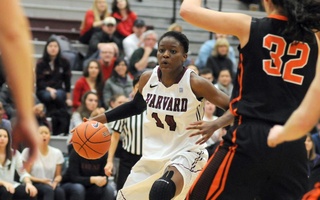As students spend reading period writing papers, the Faculty of Arts and Sciences got together to write a paper of their own, and it was not easy.
In yesterday’s faculty meeting, English Department Chair W. James Simpson reported on the progress of a two-page statement from FAS about the upcoming University-wide capital campaign.
The document, which FAS Dean Michael D. Smith asked Simpson to draft in broad consultation with faculty, alumni, and donors, will hopefully “define the promises and challenges of a research university with a college of liberal arts at its heart.”
Simpson admitted in the faculty meeting that speaking for hundreds of people in a two-to-three page report is “difficult” and “impossible.”
“You will have noticed that I’m lowering expectations,” Simpson said, “but as expectations have been duly lowered, this has turned out to be very rewarding work.”
PUTTING A STAMP ON SUMMER
The Faculty of Arts and Sciences approved a list of courses in the preliminary plan for next year’s Harvard Summer School yesterday, but this was not the only important thing on Summer School Dean Donald H. Pfister’s mind at the faculty meeting.
Next year marks the 140th session of the Harvard Summer School and the 200th anniversary of its founder, then natural history professor Asa Gray, Pfister told the faculty members before he moved on to the agenda items.
In 1871, after Harvard extended the summer session into 13 weeks, Gray started a summer botany course for teachers, making Harvard Summer School one of the earliest summer academic sessions established in the United States.
According to Pfister, Gray will be memorialized with a new stamp soon to be issued by the U.S. Postal Service.
PASSAGE TO SOUTH ASIA
The FAS officially approved the proposal introduced in April to change the name of the Department of Sanskrit and Indian Studies to the Department of South Asian Studies yesterday. But not before department chair Diana L. Eck delivered an emotional speech on the history of the department to faculty members.
“When I first came to the university, the department was located in Widener Library in a Faculty Study,” Eck said. Over the following decades, the department relocated multiple times, to locations including Grays Hall, Phillips Brooks House, Church Street, and 2 Divinity Ave.
“Now we’re above Dunkin’ Donuts at 2 Bow Street,” Eck said.
She also briefly commented on structural changes in the department during the hundred years since the first Sanskrit class at Harvard in 1872.
Since then, the department has undergone several name changes. The two most recent took place in 1902 and 1951 respectively, reflecting the addition and subtraction of South Asian languages offered at the University.
—Staff writer Gautam S. Kumar can be reached at gkumar@college.harvard.edu.
—Staff writer Sirui Li can be reached at sli@college.harvard.edu.
Read more in News
FAS Discusses Dept. Renaming, Teaching MissionRecommended Articles
-
 FOOTBALL '09: Quarterback Position Battle Takes Center Stage
FOOTBALL '09: Quarterback Position Battle Takes Center Stage -
English Department Begins SearchThe English department on Tuesday voted unanimously to begin the search for a tenure-track professor of contemporary American literature who specializes in Asian-American studies.
-
 Government, Economics Rank Low in Department Satisfaction
Government, Economics Rank Low in Department Satisfaction -
 Rediscovering Elocution
Rediscovering Elocution -
 Women’s Basketball Glides Past Columbia
Women’s Basketball Glides Past Columbia -
 Revitalizing the Humanities at Harvard
Revitalizing the Humanities at Harvard













